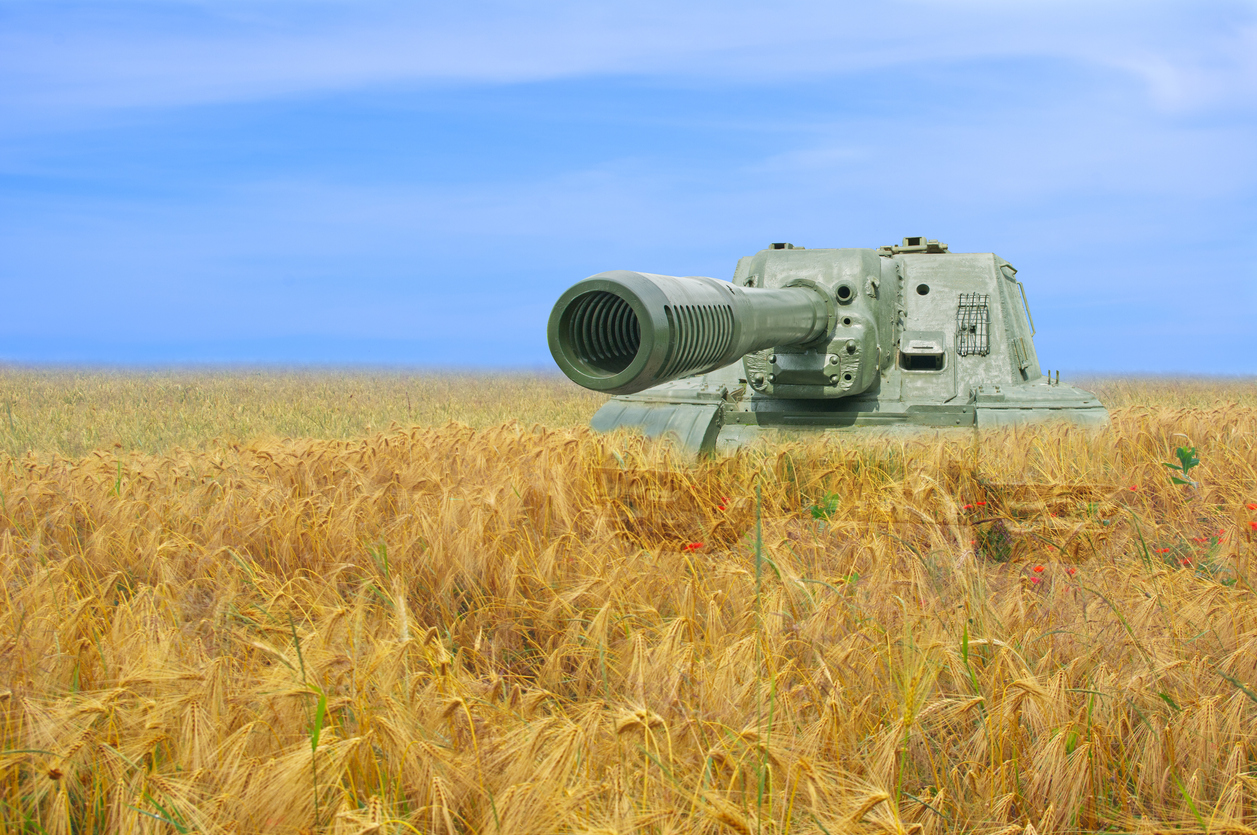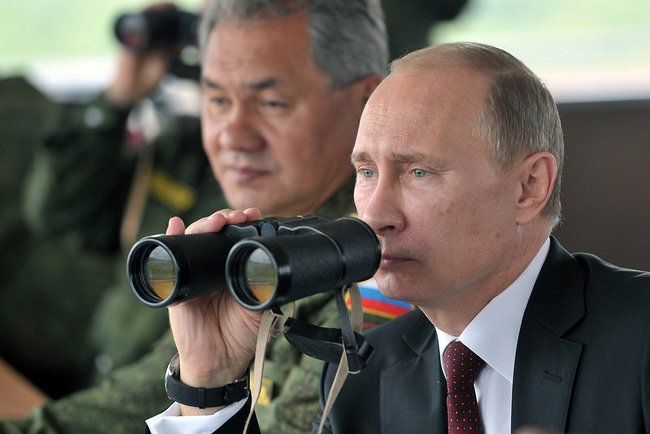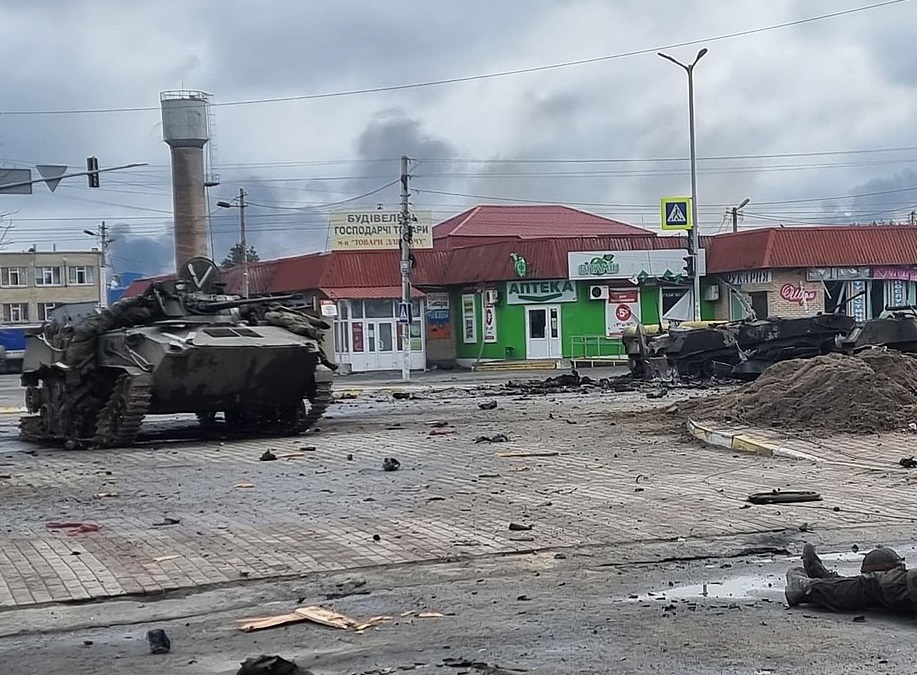Ukraine, a good American investment?

Is Poland really on the verge of a direct confrontation with Russia? Listening to the many experts and politicians who have spoken about it, one can get the impression that Poland is on the verge of a direct confrontation with Russia.
Paweł Lisicki
Such scenarios are being floated by ministers of the current government, not least by Prime Minister Donald Tusk himself. The current head of the Ministry of Defense, Władysław Kosiniak-Kamysz, has mentioned them, too. He said the following about a possible war with Russia in a recent interview: “I consider all scenarios, and I take the worst ones most seriously.” The conclusion is simple: the Polish minister of defense believes that war is the most serious – and therefore, most likely – scenario.
Other Civic Platform (PO) politicians have made similar statements, albeit with some caveats: if Russia defeats Ukraine, they claim Poland will be the next target. This atmosphere of danger is heightened by the almost daily reports that the Polish Air Force has been put on alert due to Russian airstrikes on Ukraine.
Many experts make similar claims, stating that if Moscow is allowed a breather, it will not stop and will attack the West again within a few years. Why would it do that? Here, the experts are equally unanimous: because it has to, that’s the way it is, because that’s how it has always been and always will be. Russia is a kind of metaphysical aggressor.
I don’t intend to ignore these voices, but they don’t convince me for several reasons.
As for the ruling coalition and its sometimes dramatic statements, they are strangely at odds with Donald Tusk’s domestic policy. Faced with a severe and imminent threat to the state, a normal government should seek to defuse tensions, reach an agreement, and rally all political forces around the flag. Instead, Tusk’s cabinet has led and continues to lead the country in the direction of the most extraordinary chaos we have seen since 1989. More and more state institutions are being destroyed or paralyzed, and the brutality of Poland’s domestic war is surpassing anything we have seen in the past.
Donald Tusk’s left-liberal authoritarian revolution: Poles are facing something completely new
Moreover, in the face of danger a nation focuses on its sacred and unquestionable values, which have always been the same for Poles: God, honor, and homeland. The Tusk government’s primary and declared goals are rather to implement gender ideology in Poland, make abortion universally legal, and subject the economy to climate ideology.
I may not be a great strategist, but all these actions are certainly weakening the Polish army and national will, not strengthening it. The icing on the cake – if that’s the right term – was the news that the Polish military is considering allowing transvestites into its ranks. Is this the answer to the threat of a Russian invasion?
I don’t want to dismiss the experts’ opinions in advance, either. Still, I can’t help but notice that the same people who are now talking about “breathers,” “pauses,” etc., as well as prophesying the inevitability of war were only a year ago predicting a great victory for Ukraine and encouraging the formation of an unspecified project leading to a Polish-Ukrainian confederation or alliance.
I can only note that many of these opinions are merely a transference to the Polish marketplace of ideas that have been promoted for years by American analysts who support so-called neo-conservatism.
This American factor, frankly speaking, seems to me to be decisive. In fact, David Cameron, the British foreign secretary and the United Kingdom’s former prime minister, spoke about it openly in Davos. He admitted that the war in Ukraine was the best possible American investment in years because, he said, in exchange for the billions spent on Ukraine, Russia’s war potential was successfully being significantly weakened.
My point here is not about the veracity of this conclusion – I believe that Russia’s war potential is significantly greater now than in February 2022 – but rather the reasoning behind it. The one thing that does not appear in the British politician’s argument in praise of the Americans is, of course, Ukraine, and above all the soldiers who are dying there en masse. Thus, it would be natural to think that it must be merely a pawn.
This is the main reason why I approach the announcement of Russia’s allegedly imminent attack with such caution and suspicion. If it were otherwise – if the West was actually fearful for itself – it would be impossible to understand the lack of diplomatic action to stop the conflict. If there were an imminent threat of war hanging over the West, Western diplomats would be doubling and tripling their efforts to prevent it.
Meanwhile, with the recent exception of American journalist Tucker Carlson, no one is talking to Vladimir Putin. While the naked eye can see the ineffectiveness of past policies – rearming Ukraine and economic sanctions against Russia – nothing is really happening. Just as in 2021, diplomacy is not working today.
Does this mean that if Ukraine ceases managing its current situation, a replacement state must be found in the name of implementing the grand strategy of weakening Russia? Is this about another good American investment? Who should step into that role?
This opinion piece was first published in Polish as the editor-in-chief’s column in the Do Rzeczy weekly.



